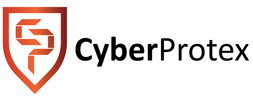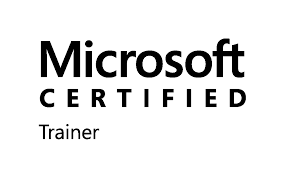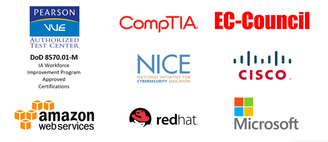|
We proudly offer our expert Microsoft training for a wide range of public and private companies, government entities, Armed Forces, educational institutions, and individuals. We provide high-quality training delivered in an exciting, dynamic format both in person and via online tools.
Contact us today for group training and rates. |
SC-100 Microsoft Cybersecurity Architect
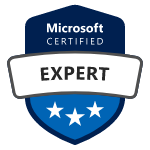
The Microsoft cybersecurity architect has subject matter expertise in designing and evolving the cybersecurity strategy to protect an organization's mission and business processes across all aspects of the enterprise architecture. The cybersecurity architect designs a Zero Trust strategy and architecture, including security strategies for data, applications, access management, identity, and infrastructure. The cybersecurity architect also evaluates Governance Risk Compliance (GRC) technical strategies and security operations strategies.
The cybersecurity architect continuously collaborates with leaders and practitioners in IT security, privacy, and other roles across an organization to plan and implement a cybersecurity strategy that meets the business needs of an organization.
A candidate for this exam should have advanced experience and knowledge in a wide range of security engineering areas including identity and access, platform protection, security operations, securing data and securing applications. They should also have experience with hybrid and cloud implementations.
You will learn:
This list contains the skills measured on the exam associated with this certification.
Design a Zero Trust strategy and architecture
Evaluate Governance Risk Compliance (GRC) technical strategies and security operations strategies
Design security for infrastructure
Design a strategy for data and applications
Recommend security best practices and priorities
The cybersecurity architect continuously collaborates with leaders and practitioners in IT security, privacy, and other roles across an organization to plan and implement a cybersecurity strategy that meets the business needs of an organization.
A candidate for this exam should have advanced experience and knowledge in a wide range of security engineering areas including identity and access, platform protection, security operations, securing data and securing applications. They should also have experience with hybrid and cloud implementations.
You will learn:
This list contains the skills measured on the exam associated with this certification.
Design a Zero Trust strategy and architecture
Evaluate Governance Risk Compliance (GRC) technical strategies and security operations strategies
Design security for infrastructure
Design a strategy for data and applications
Recommend security best practices and priorities
SC-200 Microsoft Security Operations Analyst
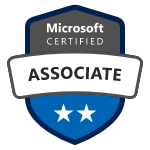
The Microsoft security operations analyst collaborates with organizational stakeholders to secure information technology systems for the organization. Their goal is to reduce organizational risk by rapidly remediating active attacks in the environment, advising on improvements to threat protection practices, and referring violations of organizational policies to appropriate stakeholders.
Candidates for this role should be familiar with attack vectors, cyberthreats, incident management, and Kusto Query Language (KQL). Candidates should also be familiar with Microsoft 365 and Azure services.
You will learn how to:
Mitigate threats using Microsoft 365 Defender
Mitigate threats using Microsoft Defender for Cloud
Mitigate threats using Microsoft Sentinel
Candidates for this role should be familiar with attack vectors, cyberthreats, incident management, and Kusto Query Language (KQL). Candidates should also be familiar with Microsoft 365 and Azure services.
You will learn how to:
Mitigate threats using Microsoft 365 Defender
Mitigate threats using Microsoft Defender for Cloud
Mitigate threats using Microsoft Sentinel
AZ-500 Microsoft Azure Secure Technologies

Candidates for this exam should have subject matter expertise implementing Azure security controls that protect identity, access, data, applications, and networks in cloud and hybrid environments as part of an end-to-end infrastructure.
Responsibilities for an Azure security engineer include managing the security posture, identifying and remediating vulnerabilities, performing threat modeling, implementing threat protection, and responding to security incident escalations.
Candidates for this exam should have practical experience in administration of Azure and hybrid environments. Candidates should have experience with infrastructure as code, security operations processes, cloud capabilities, and Azure services.
You will learn how to:
Manage identity and access
Implement platform protection
Secure data and applications
Manage security operations
Responsibilities for an Azure security engineer include managing the security posture, identifying and remediating vulnerabilities, performing threat modeling, implementing threat protection, and responding to security incident escalations.
Candidates for this exam should have practical experience in administration of Azure and hybrid environments. Candidates should have experience with infrastructure as code, security operations processes, cloud capabilities, and Azure services.
You will learn how to:
Manage identity and access
Implement platform protection
Secure data and applications
Manage security operations
SC-900 Microsoft Security, Compliance, and Identity Fundamentals
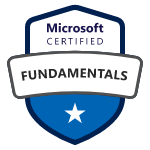
This exam is targeted to those looking to familiarize themselves with the fundamentals of security, compliance, and identity (SCI) across cloud-based and related Microsoft services.
This is a broad audience that may include business stakeholders, new or existing IT professionals, or students who have an interest in Microsoft Security, compliance, and identity solutions.
Candidates should be familiar with Microsoft Azure and Microsoft 365 and want to understand how Microsoft Security, compliance, and identity solutions can span across these solution areas to provide a holistic and end-to-end solution.
You will learn how to:
Describe the concepts of security, compliance, and identity
Describe the capabilities of Microsoft identity and access management solutions
Describe the capabilities of Microsoft Security solutions
Describe the capabilities of Microsoft compliance solutions
This is a broad audience that may include business stakeholders, new or existing IT professionals, or students who have an interest in Microsoft Security, compliance, and identity solutions.
Candidates should be familiar with Microsoft Azure and Microsoft 365 and want to understand how Microsoft Security, compliance, and identity solutions can span across these solution areas to provide a holistic and end-to-end solution.
You will learn how to:
Describe the concepts of security, compliance, and identity
Describe the capabilities of Microsoft identity and access management solutions
Describe the capabilities of Microsoft Security solutions
Describe the capabilities of Microsoft compliance solutions
AZ-900 Microsoft Azure Fundamentals

Candidates for this exam should have foundational knowledge of cloud services and how those services are provided with Microsoft Azure. The exam is intended for candidates who are just beginning to work with cloud-based solutions and services or are new to Azure.
Azure Fundamentals exam is an opportunity to prove knowledge of cloud concepts, Azure services, Azure workloads, security and privacy in Azure, as well as Azure pricing and support. Candidates should be familiar with the general technology concepts, including concepts of networking, storage, compute, application support, and application development.
You will learn how to:
Describe cloud concepts
Describe Azure architecture and services
Describe Azure management and governance
Azure Fundamentals exam is an opportunity to prove knowledge of cloud concepts, Azure services, Azure workloads, security and privacy in Azure, as well as Azure pricing and support. Candidates should be familiar with the general technology concepts, including concepts of networking, storage, compute, application support, and application development.
You will learn how to:
Describe cloud concepts
Describe Azure architecture and services
Describe Azure management and governance
MS-900 Microsoft 365 Fundamentals

This exam is designed for candidates looking to demonstrate foundational-level knowledge of Software as a Service (SaaS) solutions to facilitate productivity on-site, at home, or a combination of both. Candidates may have knowledge of cloud-based solutions or may be new to Microsoft 365. Candidates can use this exam to prepare for other Microsoft certifications, but it is not a prerequisite for any of the related certifications.
Candidates should be able to recommend Microsoft 365 solutions that address common organizational IT challenges. They should understand how Microsoft 365 solutions improve productivity, facilitate collaboration, and optimize communications.
Candidates should also be able to recommend solutions for endpoint and application management, desktop virtualization, automated operating system deployment, and rich reporting and analytics. They should be familiar with Microsoft 365 licensing, deployment and migration assistance, and support options for organizations looking to maximize their investment in the cloud.
You will learn how to:
Describe cloud concepts
Describe core Microsoft 365 services and concepts
Describe security, compliance, privacy, and trust in Microsoft 365
Describe Microsoft 365 pricing and support
Candidates should be able to recommend Microsoft 365 solutions that address common organizational IT challenges. They should understand how Microsoft 365 solutions improve productivity, facilitate collaboration, and optimize communications.
Candidates should also be able to recommend solutions for endpoint and application management, desktop virtualization, automated operating system deployment, and rich reporting and analytics. They should be familiar with Microsoft 365 licensing, deployment and migration assistance, and support options for organizations looking to maximize their investment in the cloud.
You will learn how to:
Describe cloud concepts
Describe core Microsoft 365 services and concepts
Describe security, compliance, privacy, and trust in Microsoft 365
Describe Microsoft 365 pricing and support
